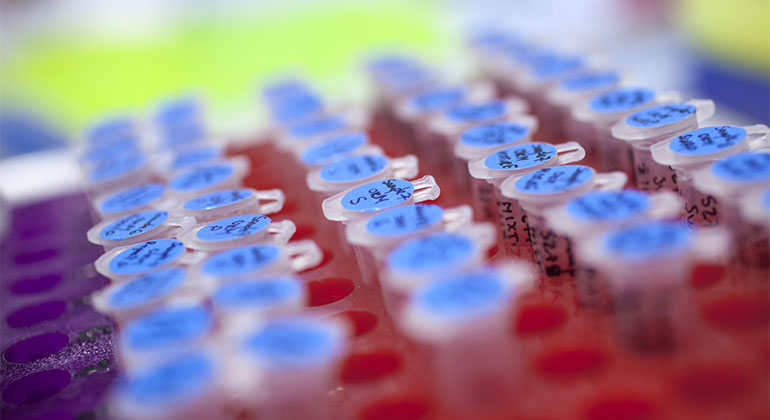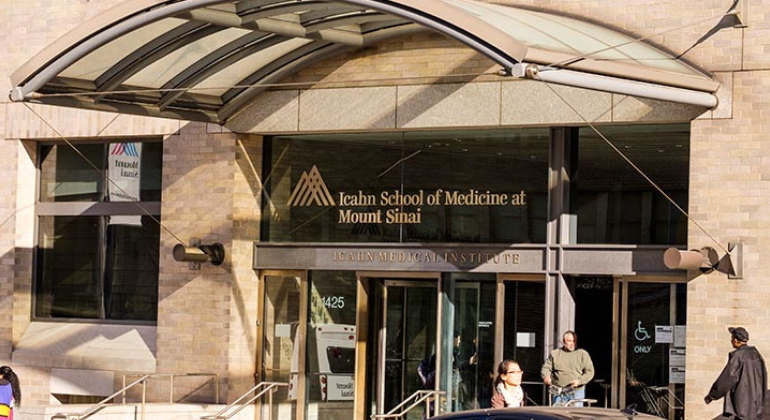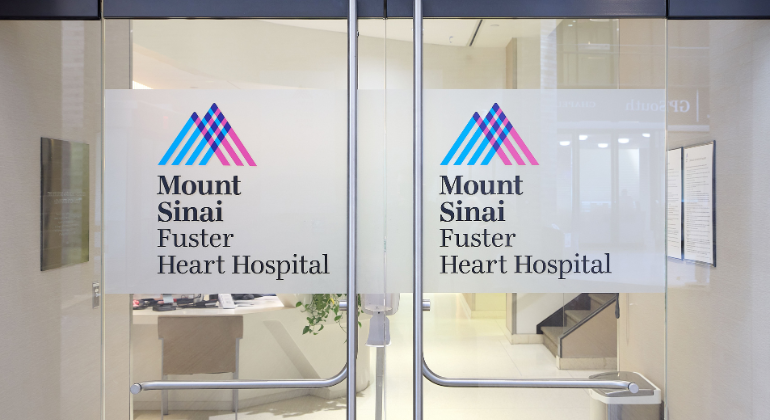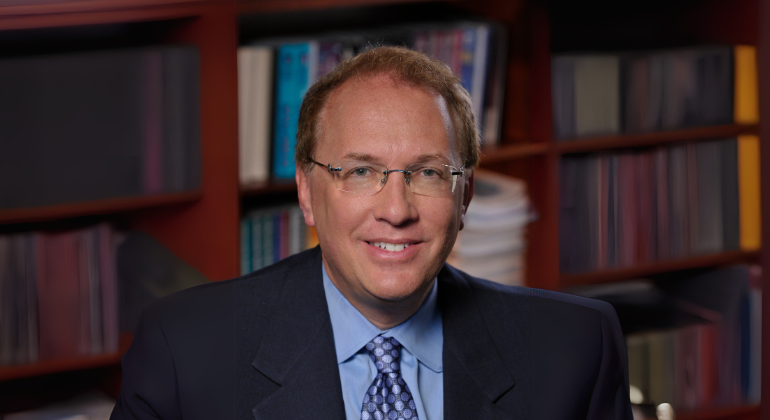Mount Sinai Enrolls 25,000 Patients for Its Landmark Biobank Program
Unique genetic information takes electronic medical record to a more precise level.
To date, 25,000 individuals representing one of the most diverse patient populations in the world, have agreed to participation in the Mount Sinai Biobank Program. The program called BioMe™ is among the largest in the United States and it is unique in that each patient has broadly consented to DNA sequencing, contact from researchers, and longitudinal studies related to data embedded in the electronic medical record (EMR).
BioMe™ accesses a broad range of clinical and environmental information stored in the EMR and links it with genetic information. It is also a repository of DNA and plasma samples that allows for secure, de-identified genetic and molecular research. In addition to being an engine for biomedical research, BioMe™ is helping doctors give enrolled patients more targeted, precise care.
A team of physicians, genetic scientists and experts in information technology at The Mount Sinai Medical Center have developed and are gradually implementing a new program called CLIPMERGE for 'Clinical Implementation of Personalized Medicine through Electronic Health Records and Genomics'. CLIPMERGE utilizes a potentially revolutionary new tool, developed at Mount Sinai that communicates with the EMR and gives doctors real-time therapeutic guidance based on a patient's genetic profile. With its interoperable BioMe™ and CLIPMERGE platforms as flagship institutional infrastructures, Mount Sinai has the unique capability to close the loop between genomic discovery and the implementation of genomic medicine in clinical care.
"We know that genetically, some patients respond better to some drugs than others," explains Erwin Bottinger, MD, Principal Investigator of BioMe™ and Director of The Charles Bronfman Institute for Personalized Medicine where the BioMe ™biobank and CLIPMERGE platforms are housed. "Our platforms are programmed to access that information to help physicians write informed prescriptions in the clinical setting." Currently, real-time feedback on optimal therapeutics based on DNA is available for three conditions related to cardiovascular disease, blood clots, and high cholesterol. As science yields greater insights into the role that genetics plays in drug efficacy and reactions, BioMe™ and CLIPMERGE will be updated accordingly.
"Discovering genetic disease risk markers through genome-wide genotyping has been a major advance toward precision medicine, but thus far the genomic information of individual patients has been limited to the laboratory and research setting," Dr. Bottinger explained. "BioMe™and CLIPMERGE allow us to bring critical individual genetic-disease risks information to the patient setting, which is already having a tremendous impact on the practice of medicine."
Dennis S. Charney, MD, Anne and Joel Ehrenkranz Dean of Icahn School of Medicine at Mount Sinai and the Executive Vice President for Academic Affairs of The Mount Sinai Medical Center said, "Enrolling 25,000 patients in the biobank is a significant achievement for Mount Sinai, propelling us to the forefront of precision medicine and its application in the clinical setting. "The future of medicine lies in genomics research and translating it to the bedside – and Mount Sinai's commitment to translational research makes us uniquely poised to lead that revolution."
"The goal of BioMe™ and CLIPMERGE is to help make medicine even more precise than ever before, where patients are given the right treatment, at the right time in order to prevent or treat disease," said Dr. Bottinger.
In 2011, Mount Sinai researchers, in collaboration with Loyola University Chicago Stritch School of Medicine, published a report that found the use of ethnic labels – African-American, Hispanic and Caucasian—may no longer be helpful in predicting disease risk or determining how a patient will respond to certain medications. The report, published in the online journal, PLoS One, found that nearly 1,000 biobank participants who self-identified as European-American, African-American, or Hispanic, had considerable parts of their genome coming from mixed-African or European ancestry.
"These findings emphasize the importance of considering the unique genotype of the individual patient rather than grouping patients by self-reported ethnicity," added Bottinger. "Individual genomic disease risk and treatment response information will allow us to provide highly effective, personalized care."
The Mount Sinai biobank was established in 2007 with a donation from The Andrea and Charles Bronfman Philanthropies. For more information on the biobank, visit: http://www.mssm.edu/research/institutes/institute-for-personalized-medicine
The Mount Sinai Medical Center
The Mount Sinai Medical Center encompasses both The Mount Sinai Hospital and Icahn School of Medicine at Mount Sinai. Established in 1968, the Icahn School of Medicine is one of the leading medical schools in the United States. The Medical School is noted for innovation in education, biomedical research, clinical care delivery, and local and global community service. It has more than 3,400 faculty in 32 departments and 14 research institutes, and ranks among the top 20 medical schools both in National Institutes of Health (NIH) funding and by U.S. News & World Report.
The Mount Sinai Hospital, founded in 1852, is a 1,171-bed tertiary- and quaternary-care teaching facility and one of the nation's oldest, largest and most-respected voluntary hospitals. In 2011, U.S. News & World Report ranked The Mount Sinai Hospital 16th on its elite Honor Roll of the nation's top hospitals based on reputation, safety, and other patient-care factors. Of the top 20 hospitals in the United States, Mount Sinai is one of 12 integrated academic medical centers whose medical school ranks among the top 20 in NIH funding and U.S. News & World Report and whose hospital is on the U.S. News & World Report Honor Roll. Nearly 60,000 people were treated at Mount Sinai as inpatients last year, and approximately 560,000 outpatient visits took place.
For more information, visit http://www.mountsinai.org
Find Mount Sinai on Facebook, Twitter and YouTube
# # #
About the Mount Sinai Health System
Mount Sinai Health System is one of the largest academic medical systems in the New York metro area, with 48,000 employees working across seven hospitals, more than 400 outpatient practices, more than 600 research and clinical labs, a school of nursing, and a leading school of medicine and graduate education. Mount Sinai advances health for all people, everywhere, by taking on the most complex health care challenges of our time—discovering and applying new scientific learning and knowledge; developing safer, more effective treatments; educating the next generation of medical leaders and innovators; and supporting local communities by delivering high-quality care to all who need it.
Through the integration of its hospitals, labs, and schools, Mount Sinai offers comprehensive health care solutions from birth through geriatrics, leveraging innovative approaches such as artificial intelligence and informatics while keeping patients’ medical and emotional needs at the center of all treatment. The Health System includes approximately 9,000 primary and specialty care physicians and 11 free-standing joint-venture centers throughout the five boroughs of New York City, Westchester, Long Island, and Florida. Hospitals within the System are consistently ranked by Newsweek’s® “The World’s Best Smart Hospitals, Best in State Hospitals, World Best Hospitals and Best Specialty Hospitals” and by U.S. News & World Report's® “Best Hospitals” and “Best Children’s Hospitals.” The Mount Sinai Hospital is on the U.S. News & World Report® “Best Hospitals” Honor Roll for 2024-2025.
For more information, visit https://www.mountsinai.org or find Mount Sinai on Facebook, Instagram, LinkedIn, X, and YouTube.

Mount Sinai Establishes Steven S. Elbaum Family Center for Caregiving
May 20, 2025 View All Press Releases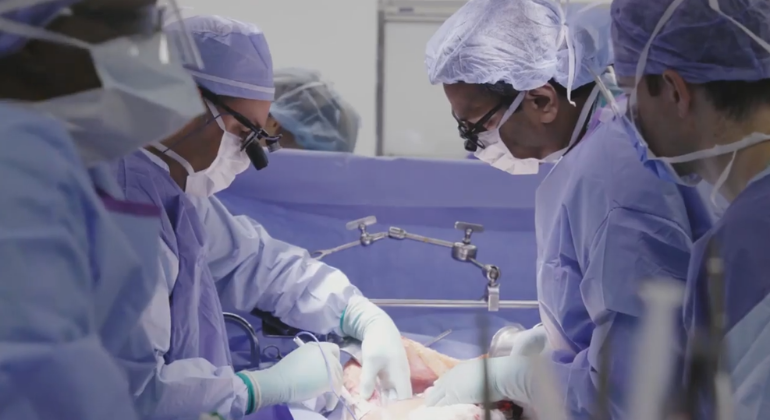
Mount Sinai Surgeons Perform First Heart-Liver-Kidney Transplants in New York State
May 20, 2025 View All Press Releases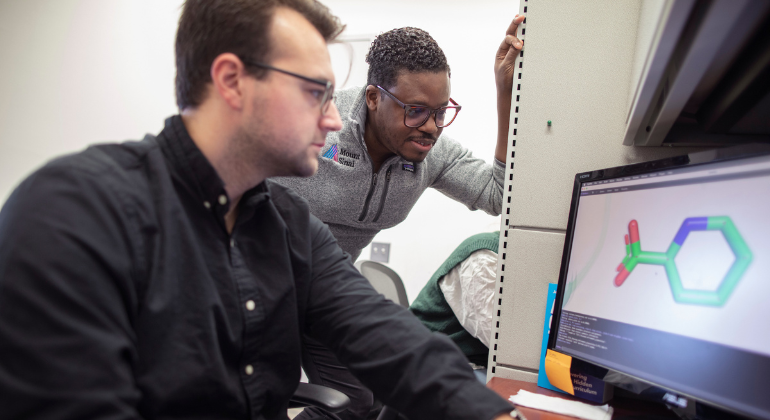
Mount Sinai Launches AI Small Molecule Drug Discovery Center
Apr 02, 2025 View All Press Releases
